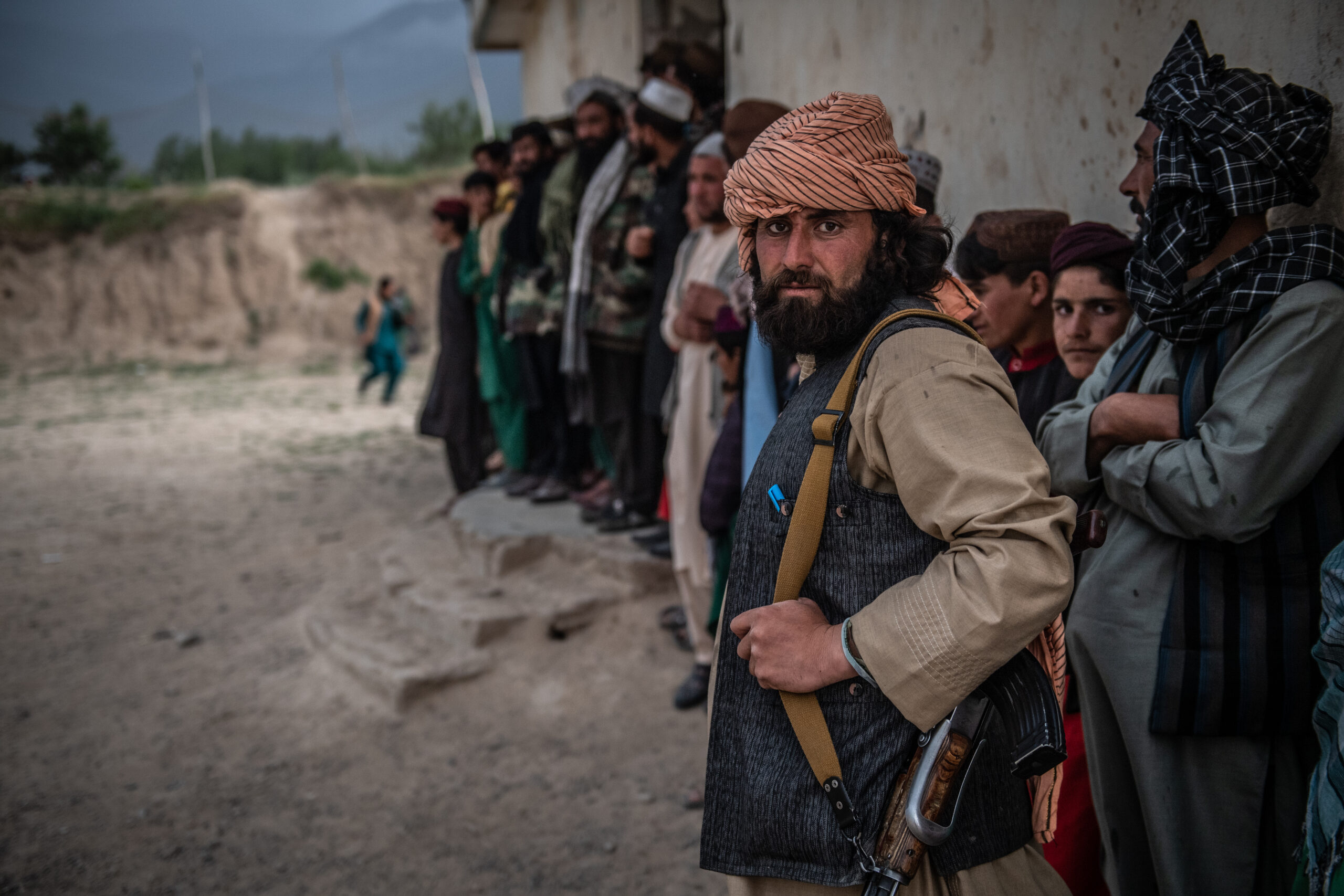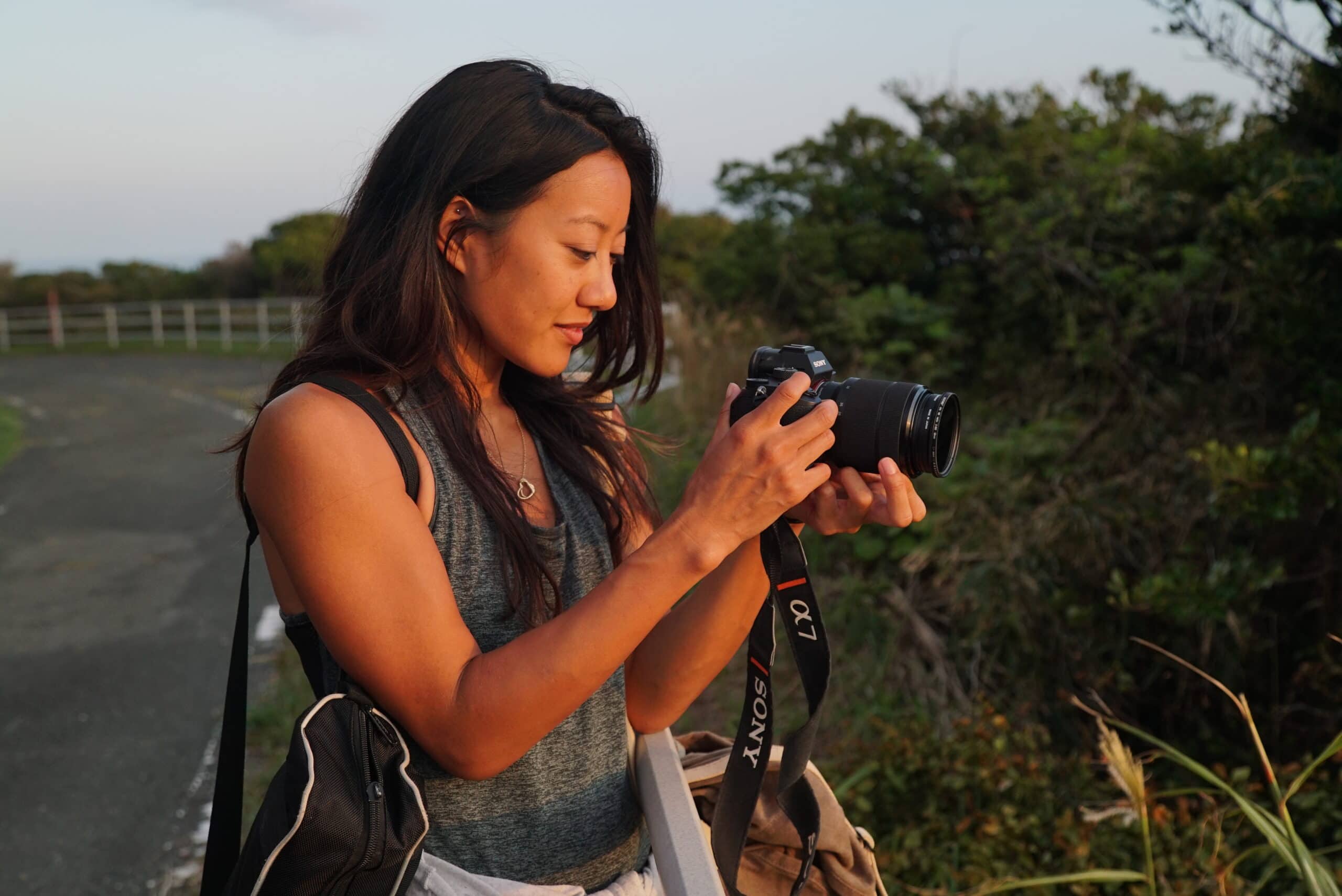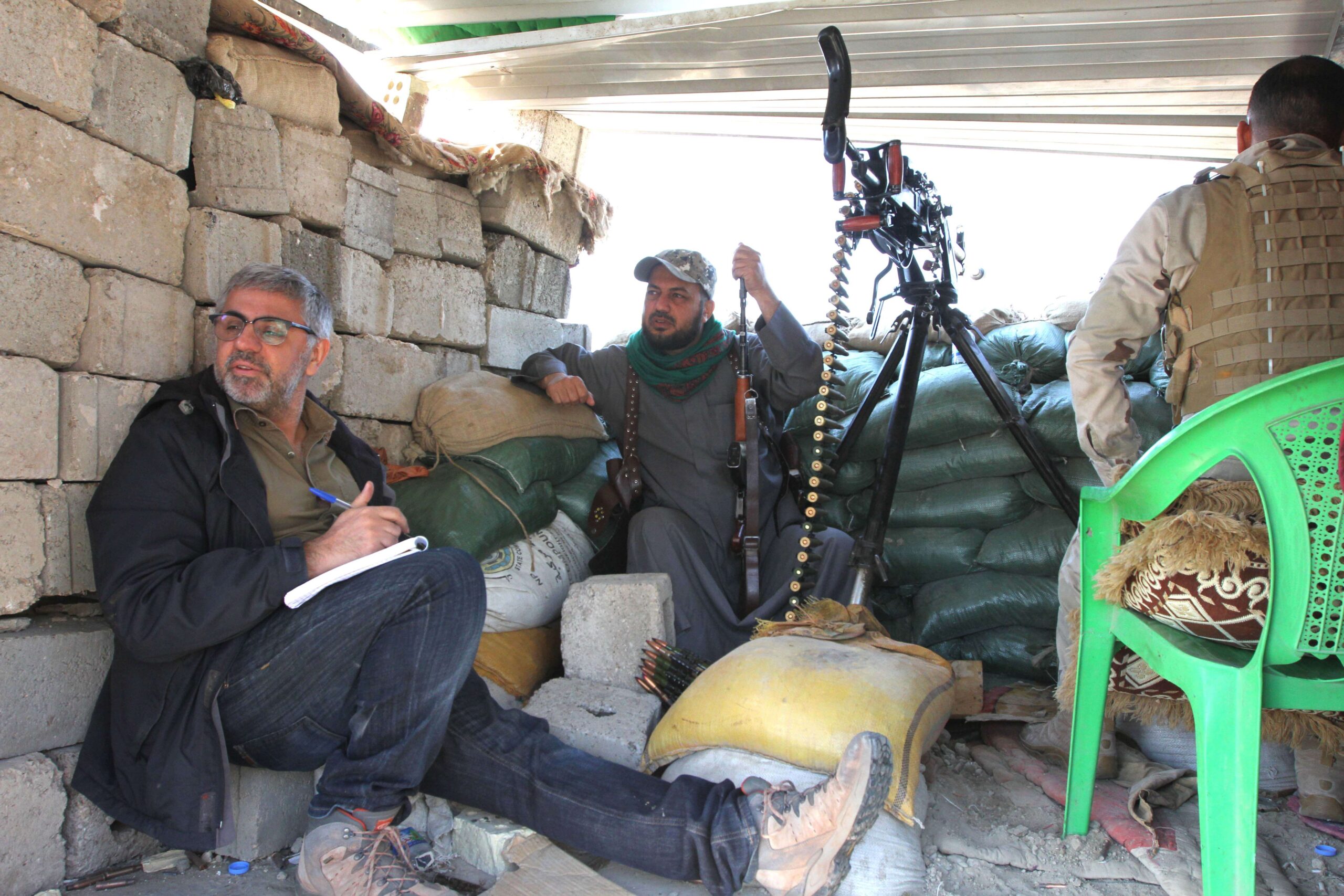This is the first exceprt of a two-part interview with Jordan Bryon and Monica Villamizar, the co-directors of the newly released film Transition. Bryon, an Australian filmmaker who had lived in Afghanistan for several years, documented the process of becoming a man while embedding with a group of Taliban insurgents. We begin this series with a discussion about how Bryon and Villamizar made the film; and conclude in part two by unpacking the ethical storytelling considerations the duo grappled with as westerners tackling a subject that many Afghan Talibs consider punishable by death.
Transition is an inherently unique example of storytelling based on the clash of values it sets up between Australian filmmaker Jordan Bryon and the Taliban fighters he’s tasked to cover for The New York Times. Western values, especially in the LGBTQAI+ community, assert that Bryon is under no obligation to divulge his intentions to further identify as a man by undergoing gender-affirming surgery. It’s also evident that the Taliban would have a different take on the matter.

Bryon introduces his quandary at the outset of the film by lamenting to the camera that “there are too many threads that are becoming very messy.” He’s clearly referring to the struggle to keep his sex assigned at birth hidden from the people who might kill him over it. However, this line could easily apply to the multiple kinds of footage that makes Transition quite the feat in documentary filmmaking.
Initially a two person crew, Bryon not only takes footage of himself in a vein resembling a reality television show confessional, but also hands the camera over — quite literally at times — to his Afghan fixer and fellow cinematographer Farzad Fetrat. Those recordings are in stark contrast to the more professional video that was meant for Bryon’s feature for The New York Times. And as the idea solidified to make a documentary about his gender reassignment under the unsuspecting eye of the Taliban, co-director Monica Villamizar stepped in with a multi-camera film crew.
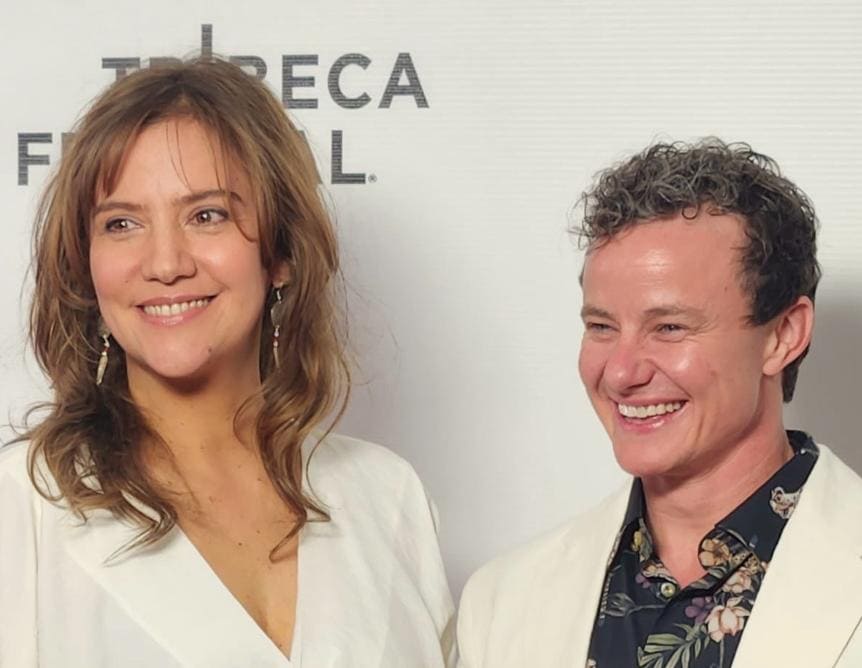
Bryon’s position as a filmmaker versus Villamizar, who’s a journalist, further enriches — or possibly complicates — the movie’s filmmaking style. Bryon sums up the difference in their storytelling perspectives by quipping that filmmakers have more fun because they’re not beholden to facts.
It would also seem filmmakers are more tempted to play up for the camera, especially when the object of the documentary is also the director. It’s a notion that Bryon doesn’t shy away from talking about, and he explains it’s why some of his earlier testimonials were left on the cutting room floor.
Yet as a filmmaker, Bryon also holds an inherent advantage over many journalists who parachuted into Afghanistan during the fall of Kabul’s western-backed government. Prior to that moment, Bryon had been living in Afghanistan for years and learned to speak fluent Dari. As the Taliban retook control, and many foreign journalists evacuated through the capital’s besieged airport, Bryon remained. This mix of circumstances combined with the Taliban’s mission to put on a PR campaign for the rest of the world gave Bryon a level of access that’s rarely enjoyed by any journalist in Afghanistan. Ironically enough, those inroads into the insurgent group’s confidence helped Bryon produce a film that will likely cause his exile from the country for years to come, if not forever.
Jordan, let’s begin by unpacking how you got embedded with the Taliban in the first place.
Bryon: Yeah, so we were driving through Kabul. You know, just kind of driving around looking to see if we came across a story to file for the New York Times. Which is a very slow way to find stories. But it’s the way that I’ve always found stories — literally just go out into the streets in Afghanistan. It’s such a gift because it guaranteed that every single day you’re going to find someone or something that makes for an interesting story.
So, I saw that outside the former vice president’s mansion, some workmen were pulling down these blast walls — these huge big concrete blocks that protect properties from suicide bombings. It was an extremely momentous moment in history. And so I said, stop the taxi. And we jumped out and we ran over to them. And there was this guy Jawad, and he was quite friendly and open to media. He gave us a tour of this obscenely opulent mansion that just was the most gaudy, wealthy place that you can imagine. And it was quite terrifying and confronting but comical as well. And so the New York Times made a short film out of that. And then I was like, guys, this character is too remarkable and articulate, which can also be rare for a Talib because many of them, especially the foot soldiers just aren’t educated. And he was just a hell of a find. He invited us to go back to their headquarters in their village in the remote Northwestern Afghan mountains. And we kept going back, spending weeks at a time making a feature film, essentially about him and his unit in the village.
When you started filming yourself, did you have any idea what you might do with that footage?
Bryon: Well at that time, we had no idea that the Taliban were going to take over the entire country, right? So there was no way that I had any foresight that I was going to be embedded with the Taliban during the early stages of my medical transition — it just wasn’t on the horizon in this lifetime or a million lifetimes. So as I was filming, I didn’t really know what I was filming for. But as filmmakers, this is what we do, right? You’ve got to get any moment that you can on camera, if it doesn’t lead anywhere, no skin off your nose. But if it does end up leading somewhere, you’re extremely grateful that you have covered whatever you have. [And that takes] having the kind of passion and foresight to capture the moment even without any attachment to the outcome.
Villamizar: You see parts of the movie are like video diaries, right? And so those are mostly things that Jordan shot himself about how he is feeling in particular moments of history, but not knowing what the footage is going to be use for. And a lot of the other stuff he recorded is very tame. So we had crews filming him, so he’s very much observed —
Did bringing in a camera crew affect the way that the story was told?
Jordan: It wasn’t until we really had professional cinematographers and Monica there that I could really let go and just be in the scene and stop having to kind of be directing in my head. And even there were a few scenes towards the beginning of shooting with the crew that we couldn’t use in the edit because you can tell that I’m conscious of the camera and you can tell that like, to be honest, I was thinking like a DP (cinematographer) and I was like, no, no, the DP shouldn’t be standing here, that’s not the best shot, the DP should be standing over there. And I wasn’t like truly immersed in the scenes.
Villamizar: Can I add something, this is super important. The project didn’t begin with Jordan saying, come here and film me. It wasn’t that kind of vanity project at all. A colleague of mine told me about Jordan and wanted to know if I could put them in touch with HBO or this or that? And I’m like, wait, no, I want to meet Jordan, I want produce his story myself. So at the beginning, it very much started as an observational documentary, like, we’re gonna go there and we’re going to film Jordan. As time evolved, we realized that he really needed to co-direct.
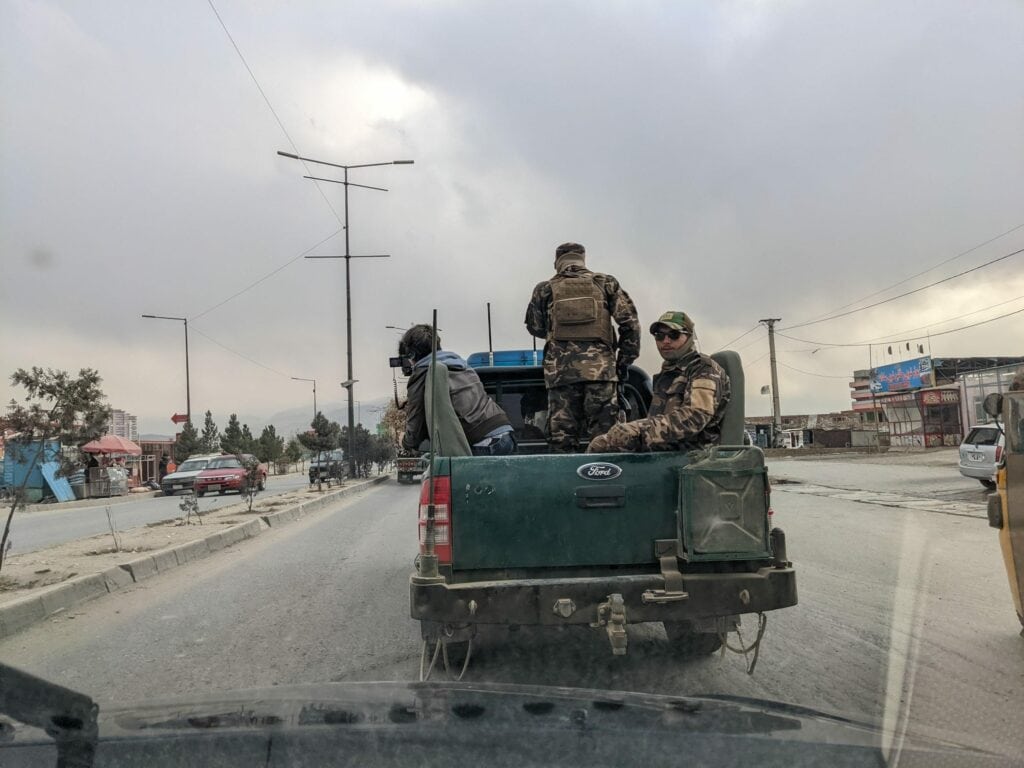
So when Monica’s crew was introduced into the mix, and Jordan, you were able to disappear into the scene, how did you make that — well — transition? Because I had a hard time wrapping my head around how you could film yourself, and not play up to the camera.
Villamizar: I think generally, you know what it was, he was conscious of the camera and you could tell because he was talking a lot. And I think, you know, when you go into a mood of a documentary that’s more contemplative, like we wanted it — I mean, there’s a lot of action, but we wanted this contemplative scenes, Jordan would just be like, kind of uncomfortable with the silence and need to fill the space with talking about something. And that just felt a bit strange. And I think it was a matter of trust. I think when when he trusted the DPs, they became more like flies on the wall to him.
Bryon: It was interesting, though, because Monica and I had never met before, right? And so I think, even for you, Monica, it took a minute to realize that this is actually my personality at times, and I wasn’t actually performing for the camera. But one thing that I was really conscious of also was as a director in real life, like I know the kind of important information the audience needs for context during certain situations. So sometimes I was giving a little bit of extra information [to the people with me in the film] to kind of make sure that the audience was oriented and knew what was going on. And it’s really funny because in the edit, there are times when the editors thought that I was acting when I wasn’t, and there were times when I was doing that, and they didn’t pick up on it. We actually had this conversation that I’m actually a better actor than a real person.
Villamizar: It was great to go through this process of the edit together, because you, Jordan, are so humble about everything, and really deferred to us most of the time, which I really appreciate it. Because as the co-director, he would have had sort of final cut and everything. And I think that’s a really fine line to walk.
With that said Jordan, as a filmmaker how do you see yourself compared to Monica who’s first and foremost a journalist?
Bryon: No, I have this really great joke as to why filmmakers are so much more fun and cool than journalists, because filmmakers don’t let the facts get in the way of a good story.
So, when Monica’s crew comes in, and there all these extra cameras in the room, does that change the dynamic of your relationship with the Taliban?
Bryon: There was no noticeable difference. As a DP, I always say that the most important part of my job is when I’m hanging out with the characters, and I’m not filming. Because that’s when you’re really building your relationship, right? And when you have that relationship, the intimacy that you share then translates to on camera. And I don’t know what it is but if Afghans give you permission to film them, they’re generally really relaxed on camera, it’s quite a phenomenal thing. Being a filmmaker in Afghanistan is an absolute gift for multiple reasons. And one of them is because Afghans are just so natural on camera.
Villamizar: Also remember, Jordan speaks the language. So that was number one, you know, they really liked him and connected and he was able to speak to them. All of the West wanted to have access to these men. Right? The first time I heard about Jordan was from a friend who works for The New York Times. And she’s like, there’s this Australian man. And he’s getting the most intimate access with the Taliban. And, you know, we are competitive. And I wanted to know, who is he, how is he getting this access to the Taliban? When I was in Afghanistan, I had to stay like seven hours away from them, because I’m a woman. And I had absolutely no access to the world that Jordan is describing, which is very conservative, full of checkpoints, they don’t talk to women, they don’t look at a woman there. It’s just absolutely impossible.
Bryon: Can I add one thing that even more than the work that I did, and the personality that I have to connect with these guys and build that trust is Farzad Fetrat, the Afghan filmmaker, who’s doing triple the work and magic that I was doing because he’s the local right? And he is absolutely brilliant at connecting with people and getting access. So I mean, I should not be taking the credit for this, like, yes, it’s a team effort. But for him, the burden and the responsibility and the stakes were far greater than any of mine.
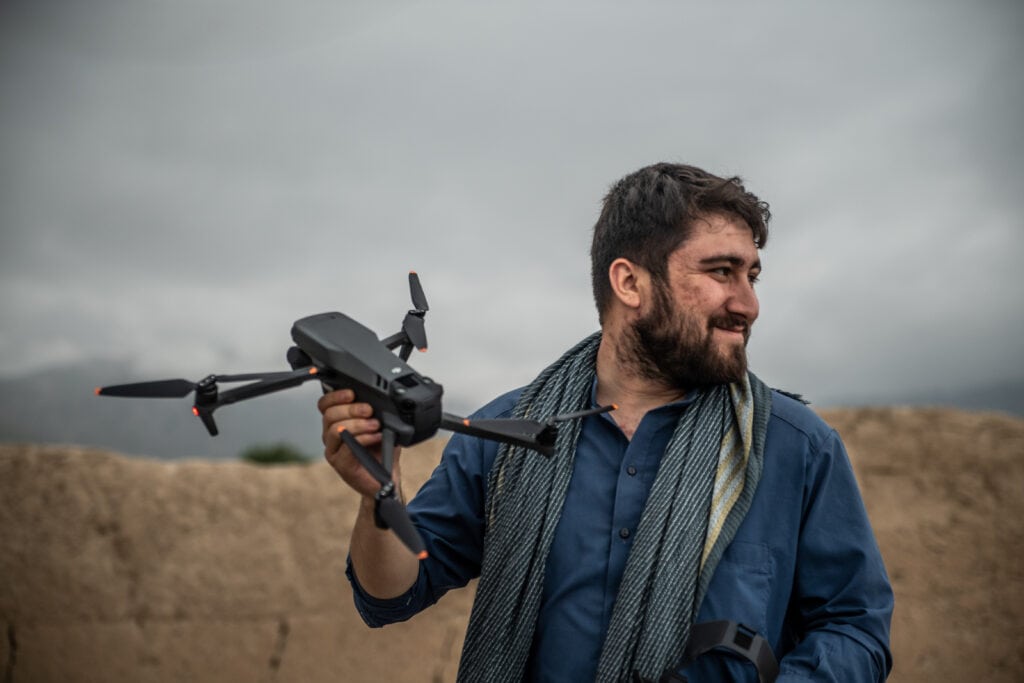
And then there’s the financial responsibility of making an independent film, I’m sure that’s a whole different kind of risk you’ve faced.
Villamizar: Yes. Thanks for mentioning that. Getting an independent film at a risky place shot and financed is really hard. And I guess you only learn when you’re the producer of the film, meaning the person who gets the finances and puts everything together and sells it, and makes the strategy to get it distributed, and it’s just sort of never ends.
Jordan: That’s pretty standard in low budget filmmaking, though.
Villamizar: That’s true. Yeah.
So besides risking your life to make this film, you’re also risking your financial security on whether the audience shows up to watch the movie?
Villamizar: It was self financed, or it did have financiers. They joined not from the get go. But pretty much by the time the paperwork on the contracts were finished. We had paid everybody. So that was very lucky that we —
Bryon: We hadn’t paid ourselves though, we’ve deferred our salary. It’s interesting but these fantastic, edgy, compelling indie films that are struggling more and more to get a place on streamers aren’t being bought, even though they’re really good stories. And so in order for us to get this film made, two of the other producers, Monica, and I all deferred our salary. And so you end up making the film for much cheaper, right? So a couple of our financiers invested a little bit of money here, a little bit of money there. And we made the film for like, not a lot smaller than a shoestring.
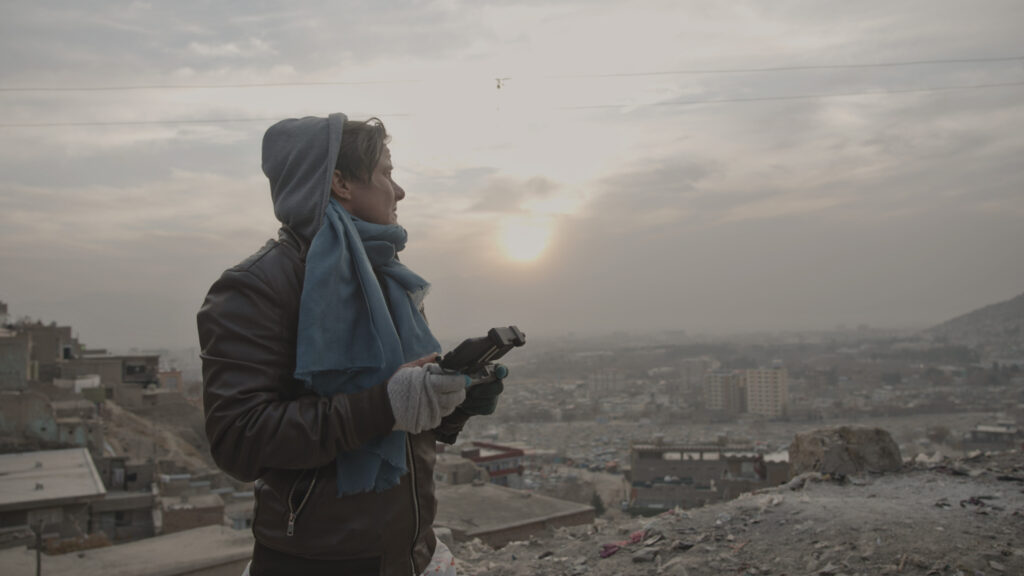
Villamizar: It was very tight budget. Absolutely. And it’s really unfair that, you know, filmmakers have to defer the salaries by the way. I mean, it is a common thing. It’s done a lot more than we realize, but it’s like a labor of love. I mean, you have to love what you do because it’s hard. And then you’re always depending on sales, while our tiny film is competing [against movies with] these huge marketing budgets. And it’s like, oh my god, how can I compete and make myself heard?
Bryon: And you know, I think that’s also something that’s really nice to be transparent about as well, because Transition is available for rent on Apple TV+. It’s available for rent on Amazon and Hulu and all these big platforms. It premiered at Tribeca and at Sheffield DocFest. And it looks like you’re living this really kind of successful glamorous life when in reality, we haven’t even been paid a salary for like two years.
This interview has been edited for conciseness and clarity.

